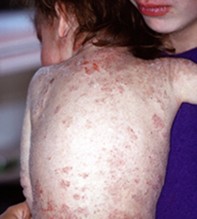Peer Reviewed
Feature Article Paediatrics
Allergy testing in paediatric atopic dermatitis
Abstract
In a child with atopic dermatitis, parents and the treating doctor may desire or need to consider the potential role of allergic triggers. The role of allergens in atopic dermatitis and the available and appropriate allergy testing methods are discussed in this article.
Key Points
- Initial management of atopic dermatitis (AD) involves education, assessment of triggers and exacerbating factors, and topical therapy.
- Testing for food allergy may be considered if AD is severe or refractory, if skin flares follow specific exposures to foods or if there is a history of anaphylaxis.
- Serology and skin prick methods of IgE testing have high rates of false-positive results. Careful interpretation of results is required, with confirmation of suspected food allergy by oral food challenge.
- Inappropriate dietary restrictions can have severe nutritional consequences in children. Dietary restrictions should be reviewed regularly.
- Testing for aeroallergen allergies is available. Interpretation of results and recommendations for management are, however, contentious areas.
- Patch testing for delayed-type allergy is recommended if regional patterns of eczema suggest allergic contact dermatitis.
Purchase the PDF version of this article
Already a subscriber? Login here.

